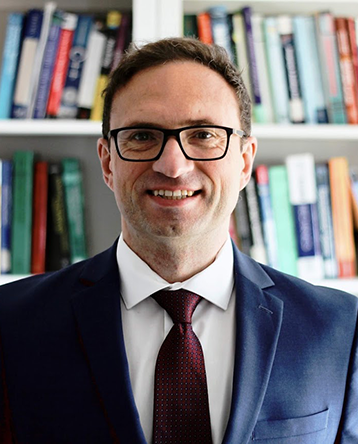Grigorios Panagakos
Special Faculty Researcher, Chemical Engineering
Special Faculty Researcher, Chemical Engineering

Grigorios Panagakos’ expertise stems from the area of computational fluid dynamics (CFD) and transport phenomena with applications ranging from carbon management and hydrogen technologies to energy storage and micro-fluidics.
In the area of carbon management, his research includes modeling and simulations of separation systems like membranes and advanced solvents for CO2 absorption on intensified, advanced manufactured devices. State-of-the-art numerical methods are at the core of Panagakos’ research with particular focus on using machine learning strategies for improved performance and process optimization. Some of these activities are part of the Carbon Capture Simulation for Industry Impact (CCSI2) program of the Department of Energy, led by the National Energy Technology Laboratory (NETL).
Panagakos received his first degree in mechanical engineering and his MS in automation systems with emphasis on robotics from the National Technical University of Athens (NTUA). His passion for numerical methods and fluid mechanics guided him to the University of Maryland at College Park for an MS in CFD and at the Technical University of Denmark for his Ph.D. on Modeling and Structural Optimization of Solid Oxide Fuel Cells (SOFCs). After the Ph.D. he spent two years as a post doc at the Center for Research and Technology Hellas in Thessaloniki and then joined NETL as an ORISE research associate, working on modeling SOFCs.
Areas of interest: CFD and transport phenomena, numerical methods and high performance computing, carbon capture utilization and storage (CCUS), microfluidics, hollow fiber membranes, fuel cells, hydrogen production and storage and thermal plants units’ operations.
Chemical Engineering
After a campus visit from the director of the National Energy Technology Lab (NETL), chemical engineering faculty reflect on the history and evolution of research collaborations.
Wilton E. Scott Institute for Energy Innovation
The Wilton E. Scott Institute for Energy Innovation’s Seed Grants for Energy Research program will support three research projects in the 2023 cycle.
CMU Engineering
Researchers at Carnegie Mellon University are exploring ways to reduce emissions from power plants using post-combustion carbon capture via absorption through additively manufactured stacked columns.
Science and Technology
ChemE’s Grigorios Panagakos has received funding from the Lawrence Livermore National Laboratory’s Laboratory Directed Research and Development Program.